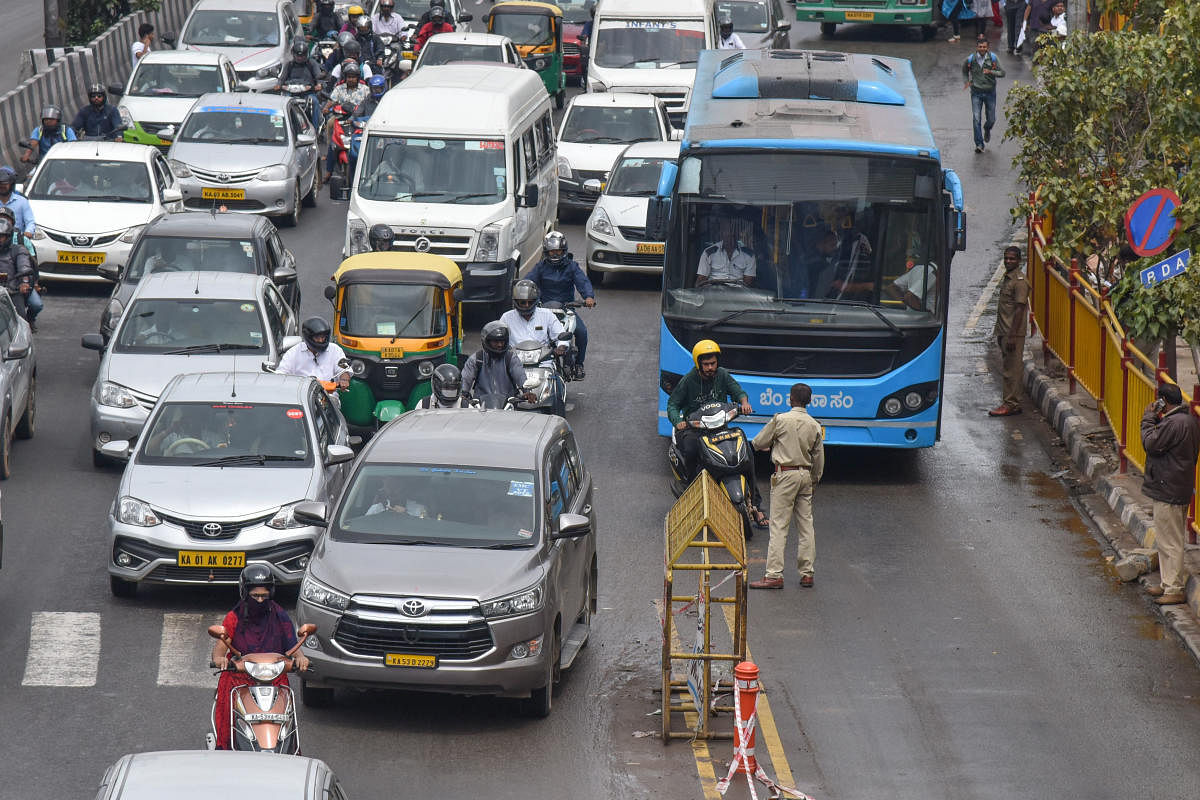
Will Bengalureans accept a system of congestion tax designed to reduce private vehicles from entering the inner city, particularly during peak hours? Will they fall in line and accept such a move that could potentially reduce traffic jams?
The main objective of the proposed system is also to encourage people to opt for public transport in a big way. This is also expected to reduce vehicular pollution. The Bangalore Metropolitan Transportation Corporation (BMTC) is pushing for its implementation in the hope that eventually, it would also benefit from more commuters.
Here’s a cross-section of Bengalureans expressing their views on this much talked about proposal. “I would reckon that it is a very commendable initiative by BMTC, and necessary too. The idea to curtail driving, and ease gridlocks will decrease pollution and reduce fuel consumption,” notes Govind Baheti, a resident of HSR layout.
He is convinced that levying a congestion tax will indeed lead to decongestion. “It will give the much-needed relief from the notorious traffic jams in the Central Business District. But before implementing this move, they should strengthen the public transport facilities,” he adds.
“This (congestion tax) is a very good initiative. So much of vehicular pollution and traffic could be cut down by this. Seeing Bengaluru’s current condition, there is a high chance that traffic jams alone could push up pollution,” says Sneha S, a Mount Carmel College student residing in Banaswadi.
She feels global warming could be reduced if these systems are adopted in all major cities. However, she has an apprehension: Congestion tax may not work well without improving public transport facilities.
“The Metro, for instance, is very crowded during peak hours, and there are inadequate number of buses. They should first improve their facilities and then implement the congestion tax,” Sneha elaborates.
Congestion tax has already been in use in several cities across the world, including Singapore, London, San Diego, Stockholm and Milan. They have installed either electronic machines or stickers on certain vehicles that pay a specified amount to get into lanes. This has ensured that traffic congestion is controlled and air pollution due to vehicles arrested.
Nirmalya Sengupta, global engineering manager, hardware, at GE Healthcare, shares his perspective: “This has been primarily used in multiple countries, mainly as a means of discouraging people to use vehicles in congested areas where large traffic pile-up is anticipated.”
Electronic road pricing, he informs, was a system introduced in Singapore a decade ago. “It works like a fast track scanner with different charges for using different sectors. The simplest way of implementing this in Bengaluru can be through toll charges,” he says.
Linking the proposed congestion tax to the bus priority lanes now being implemented on the Outer Ring Road, another road user has this to say: “If BMTC comes up with a scheme like this, and if I have to use public transport, then exclusive bus lanes would be a waste. If private vehicles are to be taken out of the roads, what was the point of separate bus lanes,” he wonders.
However, initial experience on ORR has shown that once buses are allowed to move fast and unobstructed on priority lanes, the average commute time decreases. This, then encourages more people to switch from their private vehicles to public transport.
So, who benefits mostly from the congestion tax? Most road users agree that the beneficiaries are commuters, and the business economy too. A potential reduction in travel time for all, increased use of public transport, reduced fuel consumption and pollution are bound to help take the congestion tax proposal from the planning stage to implementation.